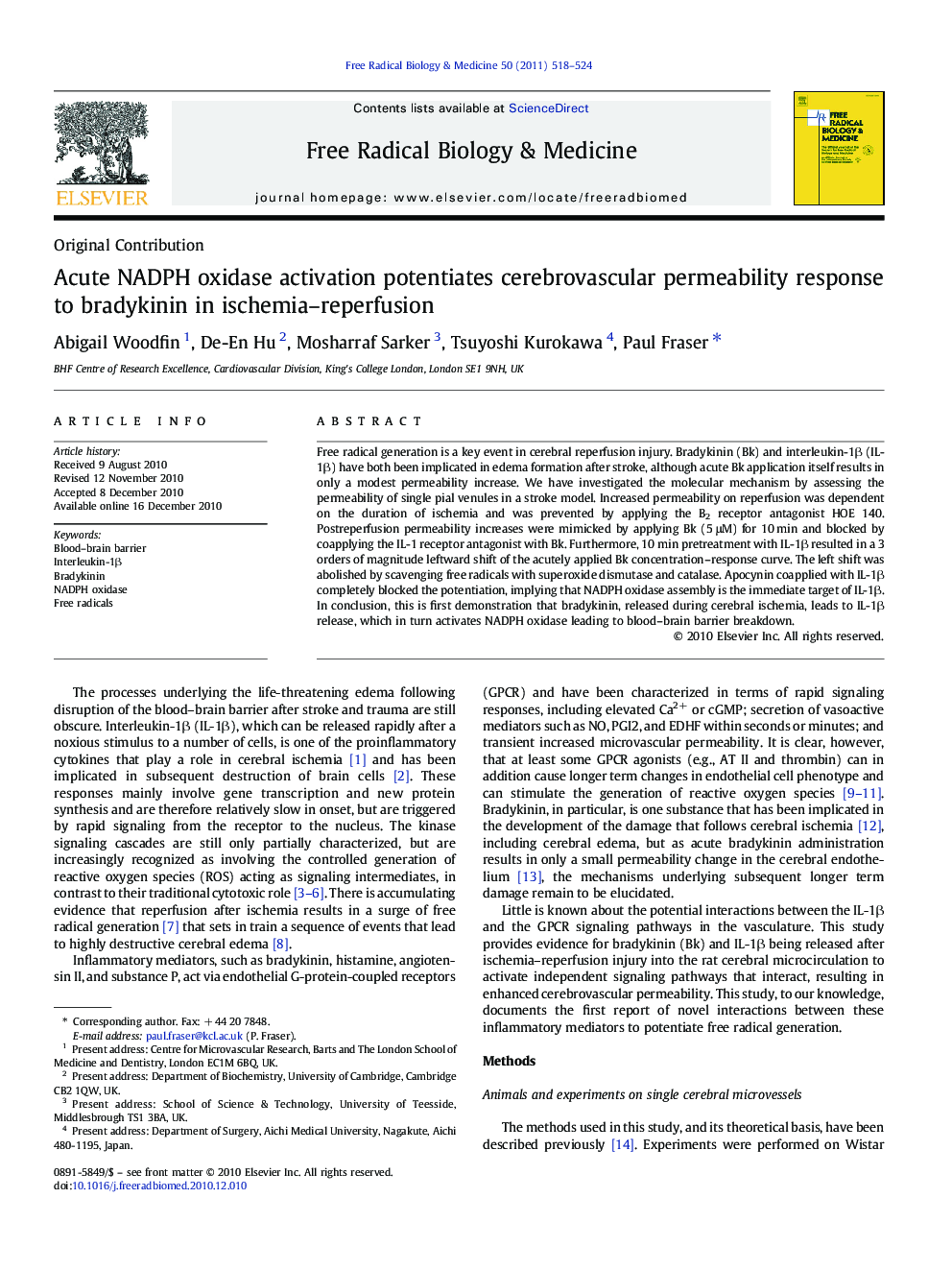| کد مقاله | کد نشریه | سال انتشار | مقاله انگلیسی | نسخه تمام متن |
|---|---|---|---|---|
| 10738628 | 1046720 | 2011 | 7 صفحه PDF | دانلود رایگان |
عنوان انگلیسی مقاله ISI
Acute NADPH oxidase activation potentiates cerebrovascular permeability response to bradykinin in ischemia-reperfusion
دانلود مقاله + سفارش ترجمه
دانلود مقاله ISI انگلیسی
رایگان برای ایرانیان
کلمات کلیدی
موضوعات مرتبط
علوم زیستی و بیوفناوری
بیوشیمی، ژنتیک و زیست شناسی مولکولی
سالمندی
پیش نمایش صفحه اول مقاله

چکیده انگلیسی
Free radical generation is a key event in cerebral reperfusion injury. Bradykinin (Bk) and interleukin-1β (IL-1β) have both been implicated in edema formation after stroke, although acute Bk application itself results in only a modest permeability increase. We have investigated the molecular mechanism by assessing the permeability of single pial venules in a stroke model. Increased permeability on reperfusion was dependent on the duration of ischemia and was prevented by applying the B2 receptor antagonist HOE 140. Postreperfusion permeability increases were mimicked by applying Bk (5 μM) for 10 min and blocked by coapplying the IL-1 receptor antagonist with Bk. Furthermore, 10 min pretreatment with IL-1β resulted in a 3 orders of magnitude leftward shift of the acutely applied Bk concentration-response curve. The left shift was abolished by scavenging free radicals with superoxide dismutase and catalase. Apocynin coapplied with IL-1β completely blocked the potentiation, implying that NADPH oxidase assembly is the immediate target of IL-1β. In conclusion, this is first demonstration that bradykinin, released during cerebral ischemia, leads to IL-1β release, which in turn activates NADPH oxidase leading to blood-brain barrier breakdown.
ناشر
Database: Elsevier - ScienceDirect (ساینس دایرکت)
Journal: Free Radical Biology and Medicine - Volume 50, Issue 4, 15 February 2011, Pages 518-524
Journal: Free Radical Biology and Medicine - Volume 50, Issue 4, 15 February 2011, Pages 518-524
نویسندگان
Abigail Woodfin, De-En Hu, Mosharraf Sarker, Tsuyoshi Kurokawa, Paul Fraser,